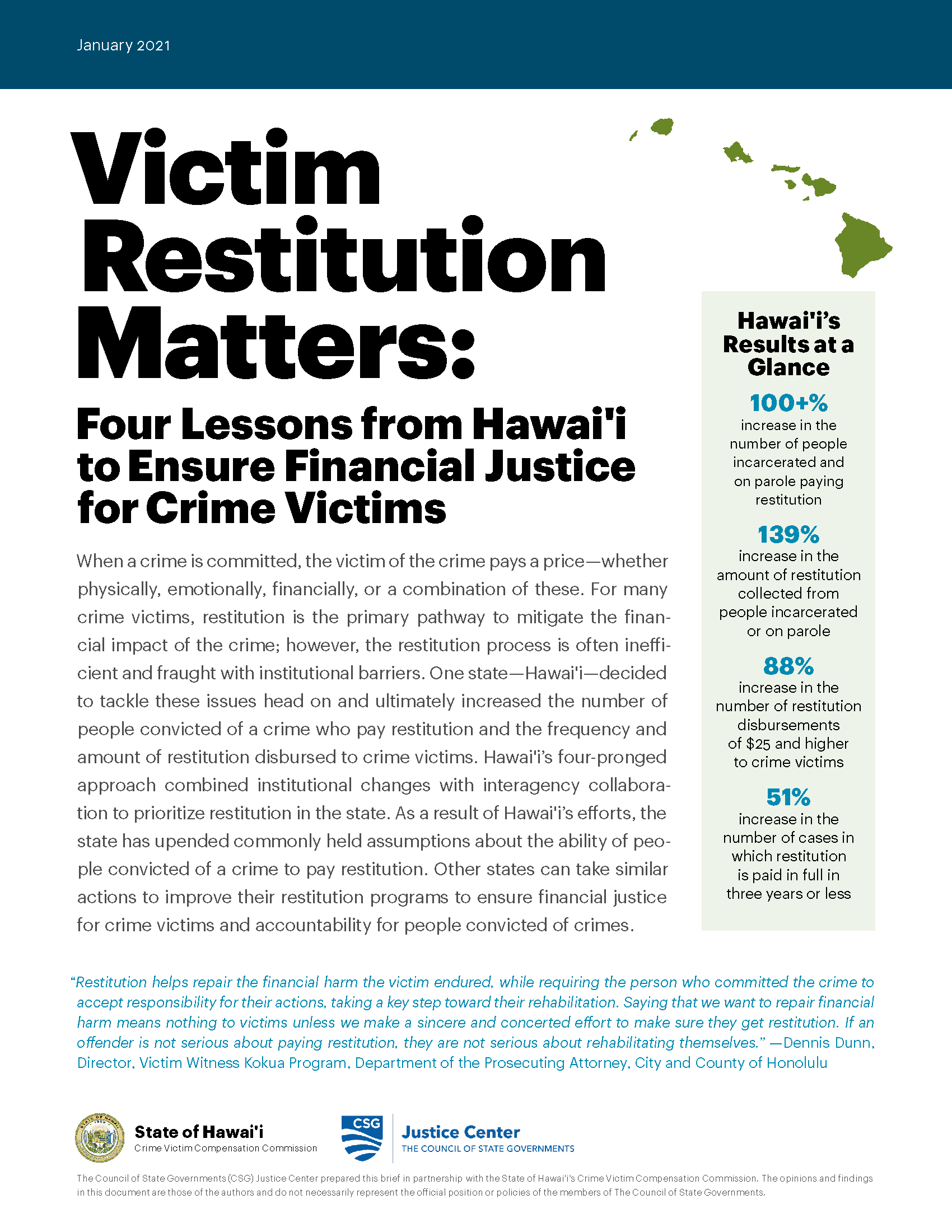Victim Restitution Matters
Four Lessons from Hawai'i to Ensure Financial Justice for Crime Victims
Victim Restitution Matters: Four Lessons from Hawai'i to Ensure Financial Justice for Crime Victims
For many crime victims, restitution is the primary pathway to mitigate the financial impact of a crime; however, the restitution process is often inefficient and fraught with institutional barriers. One state—Hawai'i—decided to tackle these issues head on and ultimately increased the number of people convicted of a crime who pay restitution and the frequency and amount of restitution disbursed to crime victims. How did Hawai'i do it? By taking four key actions that any state can pursue: (1) fostering an institutional culture where restitution is a priority for agency leaders and staff; (2) increasing coordination and collaboration across agencies to collect, track, and disburse restitution effectively; (3) collecting, analyzing, and sharing restitution data; and (4) assessing and improving statutory and administrative restitution policies and practices.
Arkansas policymakers have long expressed concerns about the state’s high recidivism rate. Over the past 10 years, an…
Read MoreIn April 2025, Arkansas Governor Sarah Huckabee Sanders signed a package of bipartisan criminal justice legislation into law,…
Read More Explainer: Key Findings and Options from Arkansas’s Justice Reinvestment Initiative
Explainer: Key Findings and Options from Arkansas’s Justice Reinvestment Initiative
Arkansas policymakers have long expressed concerns about the state’s high recidivism rate.…
Read More Explainer: How a New Law in Arkansas Tackles Crime, Recidivism, and Community Supervision Challenges
Explainer: How a New Law in Arkansas Tackles Crime, Recidivism, and Community Supervision Challenges
In April 2025, Arkansas Governor Sarah Huckabee Sanders signed a package of…
Read More










